7 Normal—And Not-So-Normal—Signs of Aging
Deeply aching joints, feeling constantly exhausted and other changes that aren’t just “part of getting old.”
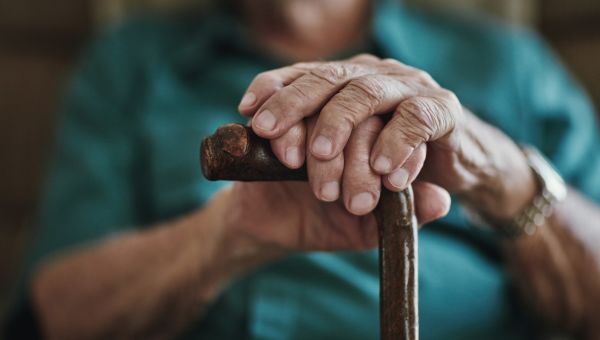
You might be familiar with the subtle physical changes that come with aging. Maybe your hearing isn’t what it used to be…maybe you just shouldn’t eat cheese anymore? But stereotypes and misinformation about aging often cause people to ignore changes they shouldn’t. Make an appointment with your family doctor or nurse practitioner if you notice any of these not-normal symptoms.
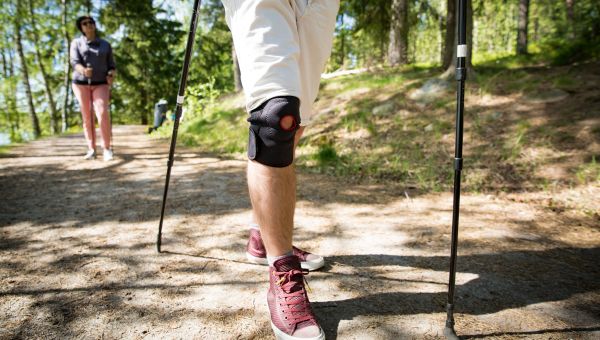
Your joints are especially achy
Joint pain related to osteoarthritis (OA) is highly common. Hip arthritis alone affects around one in four adults by age 85; about half of all people will eventually develop knee arthritis symptoms. But just because OA is common, doesn’t mean it’s universal. If your joints hurt, don’t brush it off as an inevitable part of getting older, and don’t assume you know the cause. Make an appointment with your doctor because:
- Joint pain can come from many conditions, including lupus, Lyme disease, certain cancers like leukemia and more.
- You could have injured another structure like a tendon or ligament, but it feels like joint pain.
- If it turns out to be arthritis, there are about 100 different types—your doctor needs to diagnose you to ensure you receive the proper treatment.
- For most arthritis types, including OA, there are lifestyle changes, medications and procedures that can help.
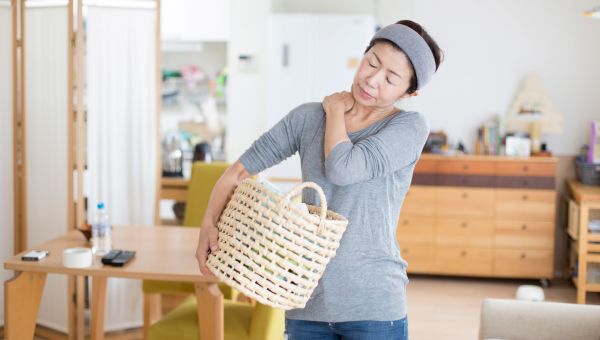
Everything’s achy
Pain is NOT a normal sign of aging. But popular misconceptions about pain often keep older adults from seeking relief. Here are three myths you need to stop believing:
- It’s inevitable: While pain is common among the elderly, the onset of pain doesn’t have a clear relationship with age. In reality, many grow old with little or no pain. Consider this—people over 65 are less likely to report pain lasting longer than 24 hours, compared with those 45 to 65 years old. Migraines, back, neck and face pain are all more common among young people as well.
- It’s going to get worse: Most research suggests age has no effect on pain intensity.
- Suffering will toughen you up: Untreated pain won’t make you stronger; it’ll just cause more problems. It’ll be harder to control once you do receive treatment and it increases your risk of depression and insomnia.
If you’re hurting, don’t assume it’s necessary or forever. Ask your doctor if lifestyle changes or medications could help.
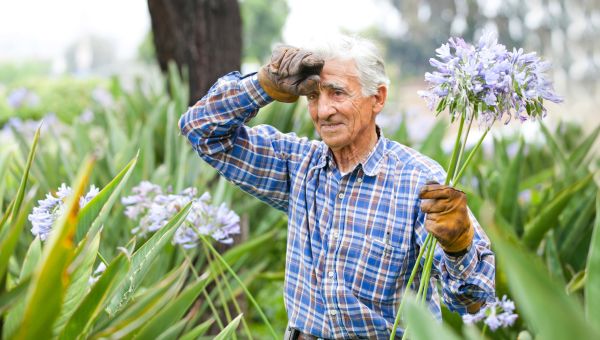
You feel constantly exhausted
You might associate growing old with slowing down, but you shouldn’t expect to always feel tired. Fatigue can signal many conditions; in older adults, it’s often a sign of undiagnosed anemia, or a low red blood cell count. Anemia of chronic disease (ACD) is especially common among people over 65, and may be triggered by long-term conditions like kidney problems and chronic infections. Other possible causes of anemia:
- Nutritional shortages: Make sure you get enough iron, folate and vitamin B12 in your diet.
- Certain medications: For example, some antibiotics and blood pressure medications can interfere with your ability to make red blood cells.
- Internal bleeding: Call 9-1-1 immediately if you experience weakness, dizziness, palpitations, fainting, a drop in blood pressure or you see blood in your stool.
In general, if you’re feeling worn out—and sleep just isn’t cutting it—your doctor can test for anemia with a simple blood draw.
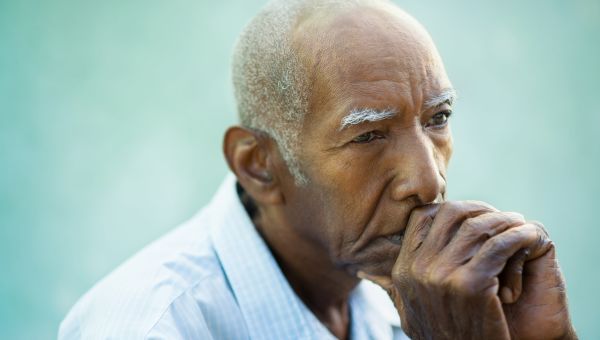
You’re becoming a “grumpy old” person
This is a false stereotype that can have serious consequences. If you or someone you love are experiencing personality changes, don’t ignore it. It could indicate a medical issue such as:
- Alzheimer’s Disease or other types of dementia
- Delirium, or a temporary mental status change related to another issue like an infection
- A mental health condition such as anxiety or depression
The “grumpy old man” stereotype may be especially harmful because men are less likely to get mental help. That often leaves them untreated and at risk for substance abuse or suicide. “In fact, men 85 and older have the highest suicide rate of any age,” says Esther Ammon, MSW, LCSW, a social worker and clinical assessment coordinator at Lourdes Medical Center of Burlington County in Willingboro, New Jersey.
How can you help? Visit older adults frequently, especially those at risk for suicide. “Invite them to meals or events; go on walks or outings,” Ammon suggests. “Also listen carefully, and offer encouragement to stay the course long enough to benefit from their treatments.”
If someone you know is contemplating suicide, stay with them and dial 9-1-1 or the National Suicide Prevention Lifeline at 1-800-273-8255.
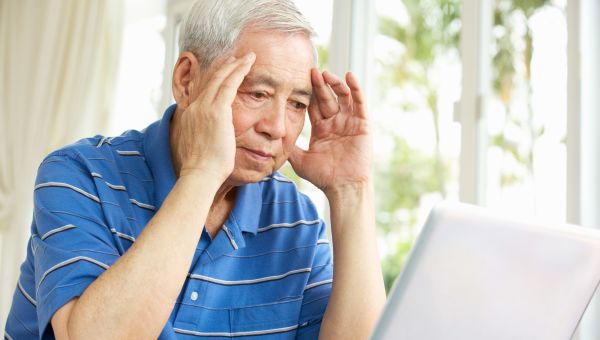
You’re having too many “senior moments”
It’s normal to experience some mild cognitive changes with aging like the occasional trouble finding words. But if memory and thinking problems start to interfere with daily life, depression or dementia could be to blame.
“There are several types of depression, and the condition can look different in different people,” says Ammon.
Among older adults, depression often has similar symptoms to dementia. (And the two are often interconnected—depression may be a sign of dementia or put older adults at higher risk for it.) “For example, depression may cause difficulty concentrating, remembering or making decisions,” she continues. These also may be early signs of dementia. Some key differences:
- People with depression tend to notice and become troubled by their memory problems; those with dementia often don’t.
- Mental decline happens quickly with depression, gradually with dementia.
- People with depression may be slow to remember the occasional word; dementia can impair writing and speaking skills in general.
In both cases, getting help is essential. “Depression is one of the few conditions in which treatment can make a rapid and dramatic difference in an elderly person’s level of function,” Ammon explains. Treatment can improve quality of life and help a person with dementia stay independent longer.
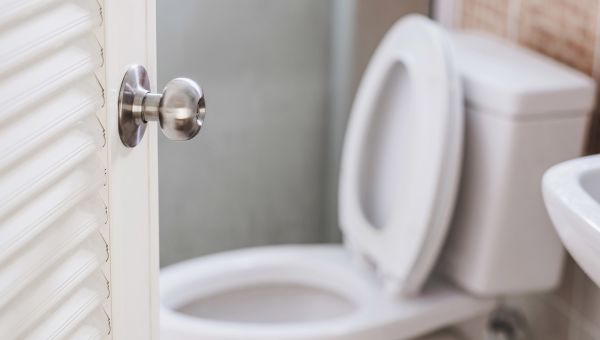
You have a hard time controlling your bladder
As you get older, your bladder becomes less elastic, meaning it can’t stretch to hold urine as easily. Bladder muscles may also weaken, and some medical conditions like urinary tract infections can cause short-term incontinence. But tell your if symptoms last. You don’t need to just accept incontinence after a certain age—there are many treatment options, including:
- Kegel exercises: These involve squeezing the muscles you use to start and stop urine. Talk to your doctor before trying them since they’re not appropriate for everyone, and some people should have supervision from a physical therapist.
- Medical devices: A urethral insert, for example, can block the tube that releases your urine for short periods of time, like during exercise.
- Lifestyle changes: Cutting tobacco, alcohol and caffeine may help.
Medications to relax your bladder muscles, electrical stimulation of bladder nerves or surgery may be appropriate in some cases.

You’re having less sex
You’re never too old for good sex. But many older adults don’t speak up about loss of libido or decreased sexual function for reasons like embarrassment or assumptions about aging. Often, healthcare providers don’t ask.
But your sex life offers important clues about your overall health. For one thing, erectile dysfunction can be an early warning sign of heart problems. A typical cause is lack of blood flow to the penis, which can mean arteries supplying the heart are clogged, as well. Speak up if you have a hard time getting or keeping an erection—doing so can help your doctor diagnose and treat any underlying conditions.
Women don’t have to just live with issues like vaginal dryness, pain during sex or vaginal prolapse, either. Make an appointment with your OBGYN to discuss treatment options.
Marc Rothman, MD, Medical Director of Lourdes Medical Center of Burlington County was consulted for this article. Medical review was completed by Keith Roach, MD, Chief Medical Officer of Sharecare.
More On


video

article

slideshow


video


video
